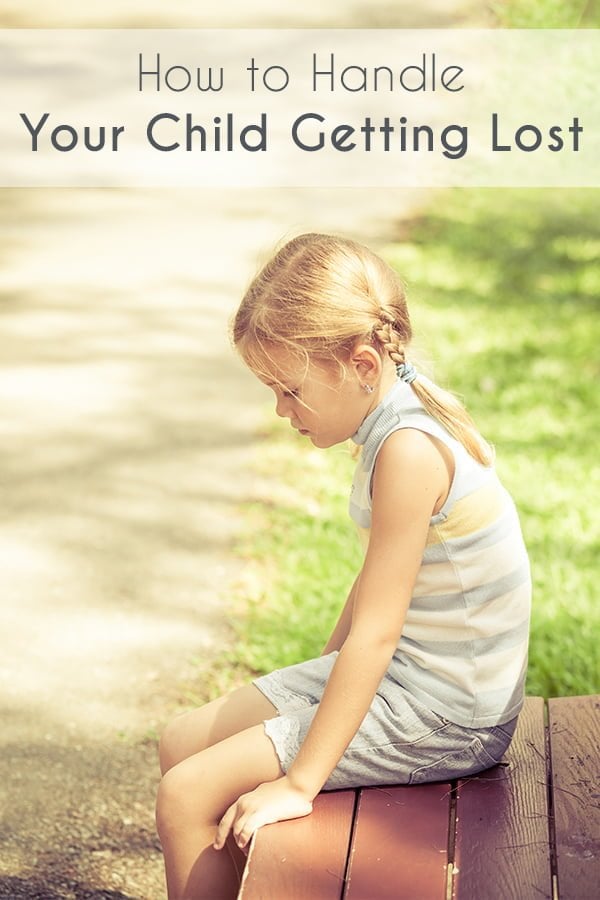What to Do if Your Child Gets Lost
It can happen in a blink of an eye: you simply turn away in a crowded place. When you turn back, your child is nowhere to be seen. Here’s what to do if your child gets lost.
Losing sight of your child – even for a moment – can be frightening, but it is a reality many parents will face at some point in a child’s upbringing. An extremely helpful lesson you can teach your child is how to be both cautious and calm if she is separated from you.
It is believed that 2,100 reports are filed everyday for missing children. Most of these separations occur in crowded areas like shopping centers, amusement parks, zoos, museums, or special events like concerts or sporting activities.
Often a parent’s attention is focused on their surroundings, their phone, a map or schedule. This distraction makes it easy for children to wander off or ahead of the family.
“Younger children are anxious, and move from one attraction to another pretty quickly, where mom and dad stay behind a bit,” according to Robin Innes, the director of public relations for Cedar Point an amusement park in Ohio.
Before You Get to Your Destination
The best way to keep your child safe in the event they are separated from you is to set ground rules in advance.
- First, tell your child to stay where they were the last time you were together. Wandering parents and children can prolong a search. Tell your child to stop and wait for you to come to them.
- With a young child, teach them your real name, and if possible, your cell phone number. It sounds simple, but many young kids only know you as “mom” or “dad”.
- If you’ll be taking a young one to a crowded event, consider getting a reusable safety bracelet or writing your phone number on a silicone bracelet or inside their shoe. If you are separated, another parent or the authorities will be able to contact you.
- Role play possible scenarios that mimic getting lost. Run through different scenarios and teach step-by-step how to react if they are separated from you.
- Identify people to ask for help. Teach children to stay in one place and call your name, but if you don’t come then they need to ask for help. Many experts suggest telling kids to find a mother who has children in tow for help. This will help ease a child’s fears in a moment of crisis, especially if you have stressed the never talk to strangers rule.
- For older kids with cell phones, make sure their ringer is on. If your child is carrying a smartphone or device you might be able to monitor their location by using GPS tracking or social media posts.
- Take a photo of your child that morning. If you need to seek help locating your child, having a photo of them in that day’s clothes can help make sure they’re spotted quickly.
What to Do If Your Child Gets Lost
The moment you become separated from a child is a parent’s worst nightmare. As your heart is racing and adrenaline levels are rising, it is easy to panic.
Take a deep breath and clear your head. Focus on solving the problem and following your plan.Odds are that your child is still close by. With a clear head, you’ll be more easily able to think about where your child might have wandered.
- Do a quick search. Call your child’s name. It’s likely they’re not far away, but just out of sight.
- Get help quickly. Experts recommend seeking help from employees, other patrons, and authorities within 10 minutes of a separation. Retrace your steps and take advantage of the protocol many businesses and attractions offer for lost children.
- Call the police. If you haven’t found your child after 10 minutes, it may be wise to contact authorities. The first three hours are the most critical to locate a missing child. “Give them a good description of where you last saw your child and in what kind of clothes. Stay calm and remember that calling the police does not mean the worst has happened,” says psychologist Rebecca Bailey, Ph.D., coauthor of Safe Kids, Smart Parents.
- Most importantly, trust your instincts. As an attached parent, you have your own inner guidance system connecting you to your child. By remaining calm, aware, and knowing you have a plan, your chances of getting separated are greatly reduced.

